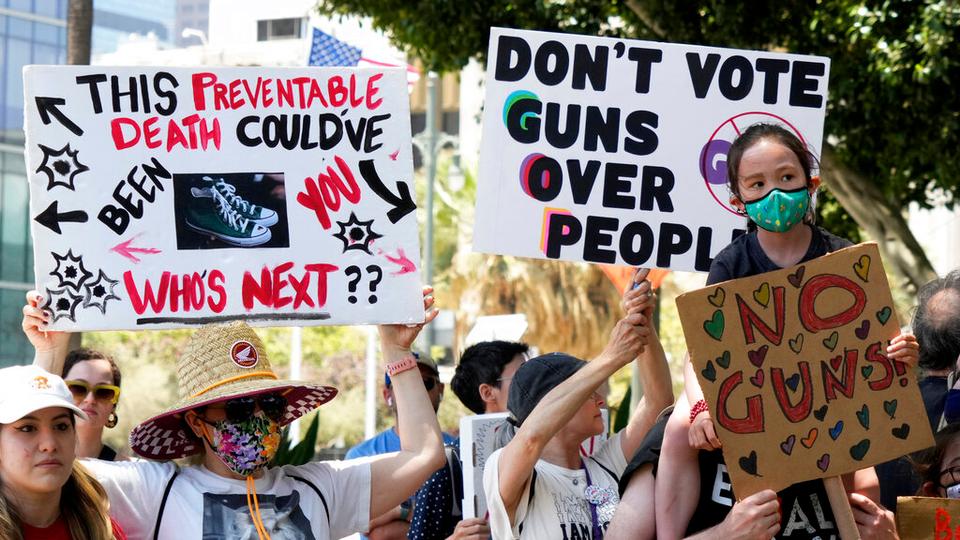US Supreme Court’s ruling striking down New York state’s limits on carrying concealed handguns in public is likely to provide legal ammunition to challenge other regulations around the country even as Congress has passed modest reforms.

(AP)
The US Supreme Court ruled for the first time that the US Constitution’s Second Amendment
secures an individual’s right to carry weapons in public for
self-defence.
The US House of Representatives on Friday passed significant gun-safety legislation for the first time in almost three decades, sending it to President Joe Biden to sign, less than a day after a Supreme Court ruling that broadly expanded gun rights.
Gun control has long been a divisive issue in the United States with multiple attempts to place new controls on gun sales failing time after time until Friday.
On Thursday, the Supreme Court, with its 6-3 conservative majority, struck down New York state’s limits on carrying concealed handguns outside the home. The court found that the law, enacted in 1913, was unconstitutional.
That ruling and the gun-safety legislation passed on Friday illustrate a deep divide over firearms in the United States, weeks after the Uvalde and Buffalo shootings that killed more than 30 people, including 19 young children at an elementary school.
What does it change?
The ruling struck down New York’s gun licensing laws and
similar laws in California, Hawaii, Maryland, Massachusetts, New
Jersey and the District of Columbia denying concealed-carry gun
permits to residents wanting a gun for self-defense unless they
could prove they had “proper cause.”
The ruling makes it much more difficult for US lawmakers
to regulate guns and other weapons in a way other countries can,
and easier for the National Rifle Association and other pro-gun
groups to win legal challenges to gun regulations.
Gun makers said the ruling would likely expand their market
in a country that, according to the Geneva-based Small Arms
Survey, is the only one with more guns in civilian ownership
than people. Since 2005, the Protection of Lawful Commerce in
Arms Act has provided near blanket immunity for gun makers and
dealers from liability for crimes committed with their products.
In a concurring opinion, Justice Brett Kavanaugh, a
conservative, wrote that licensing regimes for handguns used by
43 states that do not require “proper cause” are acceptable.
Officials in the states affected by the ruling have said they
are planning to rewrite their laws along those lines.
Provisions used by many states, including checking the
criminal and mental health records of a gun license applicant,
taking the applicant’s fingerprints and requiring them to take
firearms training are all constitutional, Kavanaugh wrote.
Can you carry a weapon anywhere now?
No. The court repeated an earlier ruling that weapons could
be banned in “sensitive places such as schools and government
buildings.”
Leaders in New York have said they will seek to ban guns
from as many places, including the subway, as they can. New
Jersey Governor Phil Murphy said he will seek legislation
banning guns in such places as bars, arenas, hospitals and
government buildings. California officials said they would draw
up similar lists.
Tom King, president of the New York State Rifle and Pistol
Association, one of the plaintiffs in the Supreme Court case,
said he would legally challenge any transit gun ban.
What did the ruling say?
The 63-page opinion of the court’s conservative majority in
the New York State Rifle & Pistol Association v. Bruen says that
there is a “constitutional right to bear arms in public for
self-defense.”
The right is comparable to other foundational rights secured
by the US Constitution, the opinion said, such as the right to
due process or to the free exercise of religion. Unlike those
rights, the opinion says the right to carry weapons may be
limited only to “law-abiding, responsible citizens.”
Source: Reuters

